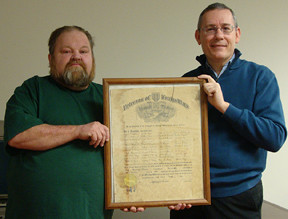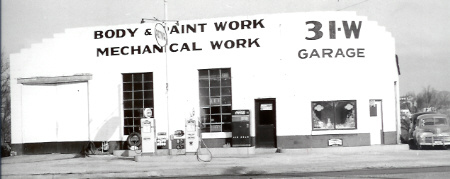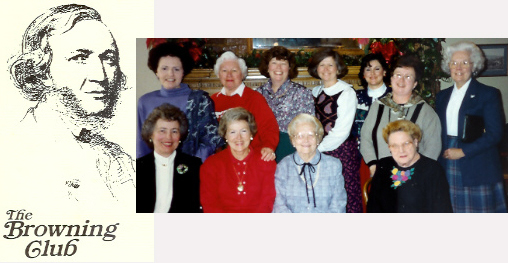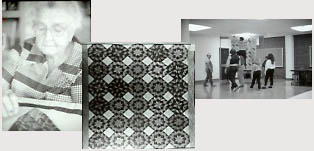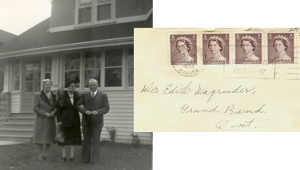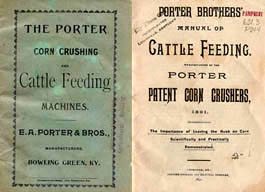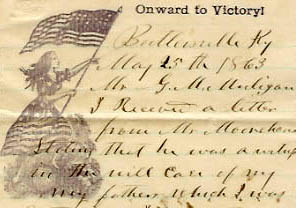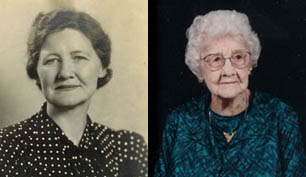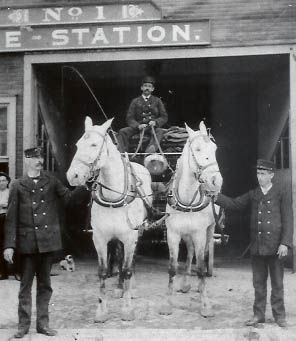
E. Porter Dodd, Bowling Green fireman (on right)
Many Hilltoppers know the story of the Van Meter Hall ghost. It is said to be that of a workman who met his death during the building’s construction in 1910-11. Perched on the roof, he was reported to have fallen through the skylight above the stage after looking up and being startled by an airplane, a novel sight in early 20th-century Bowling Green. A chance discovery in a manuscript collection at WKU’s Special Collections Library has now provided a factual basis for this story, but with a few twists.
E. Porter Dodd joined the Bowling Green Fire Department in 1900 as one of its first paid employees. For the next 40 years, as both firefighter and watchman, he kept notes in two record books on people, places and events in town. Dodd also made lists of local deaths, whether by natural causes, foul play or accident. On September 2, 1918, Dodd noted an exciting milestone: the “first aeroplane to fly to Bowling Green.” He was referring to the arrival of an army aviator from Memphis, who had made the 266-mile flight in just under 3 hours and was to exhibit his flying skills at the Warren County Fair. Unfortunately, Dodd’s next entry records the tragic event that cast a shadow over the festivities: the fatal fall of “a boy” through the “Sky light” at the “State Normal.”
We can go next to the newspaper to find out what happened. Henry Clegg, a young man from Alabama who had just entered the Bowling Green Business University, had joined other students on the roof of Van Meter Hall at the Western Kentucky State Normal School to witness the history-making flight. When word came (falsely, as it turned out) of the plane’s approach, Clegg’s eager rush to a better observation point resulted in his fatal plunge through the skylight. The 20-year-old died a few hours later at St. Joseph’s Hospital.
It seems, then, that over the years both the date of the accident and the identity of the victim became shrouded in myth and faulty recollection. Thanks to Porter Dodd’s record book, however, we can add another chapter to WKU’s haunted history. It only remains to be proven whether it is the ghost of young Henry Clegg that inhabits Van Meter Hall.
A finding aid for E. Porter Dodd’s record book can be downloaded here.
